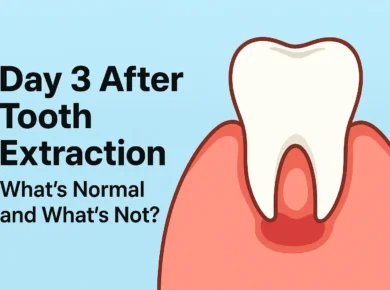Generally, high blood pressure should be under 130/80 mm Hg. Ask your healthcare provider what your target blood pressure level is, and follow their advice to lower your blood pressure. A healthy diet should include plenty of fresh fruits and vegetables, low-fat dairy, and fewer calories from saturated fat and total fat. If you suffer from high blood pressure, reduce your sodium intake. Aim for less than 1,500 mg of sodium per day.
Eat more potassium and less sodium.
While many people get enough potassium from their daily food intake, most Americans only get half the recommended potassium per day. It is found in many foods, including fruits, vegetables, beans, and seeds. While bananas are the poster child for potassium, other low-calorie foods can also provide ample potassium. Some examples of foods that contain plenty of potassium include leafy greens, broccoli, butternut squash, and nectarines.
Research shows that an increase in dietary potassium can reduce blood pressure by 1.0 mm Hg or 0.52 mm Hg. An excellent example of a high-potassium food is Swiss chard, containing 792 mg of potassium per serving. Other foods high in potassium include beans, bananas, spinach, avocado, and coffee. Although the effects of these foods are minor, the long-term impact of eating more potassium and less sodium is well documented.
The average American diet has too much sodium and not enough potassium. Changing this imbalance can prevent high blood pressure, but it can also reduce your risk of heart disease and heart attacks. Because potassium is a critical component of our cells, our bodies need a diet that is high in it. Potassium helps regulate blood pressure and improves other systems in the body. Potassium and sodium are two minerals that work in tandem to remove excess sodium from the cells of our bodies.
Stop smoking
This study aims to develop interventions that can help high blood pressure patients quit smoking and control their weight. Although there is no direct evidence that stopping smoking will lower blood pressure, several studies show that it may lower blood pressure in smokers. One of the most promising interventions is the smoking cessation program. Participants are encouraged to quit smoking during counselling sessions, and counsellors provide them with information about how to stop.
The Food and Drug Administration defines low sodium as less than five per cent sodium. Smoking raises blood pressure, and it can reduce the effectiveness of blood pressure medicines. In addition, smoking increases blood pressure for several minutes after quitting. By stopping smoking, your blood pressure returns to normal. Quit smoking lowers your blood pressure, but it also improves your health. Leaving early can help you prevent heart disease and lower your blood pressure. Smoking increases the risk of other illnesses, such as lung cancer, COPD, and emphysema. These are serious risks, but quitting smoking can significantly improve your health.
Cut back on sugar and refined carbohydrates.
Cutting back on sugar and refined carbohydrates can lower blood pressure by ten points. These foods trigger the release of dopamine, a hormone that stimulates the brain’s reward centre. Withdrawal from sugar may cause several side effects, including headaches, anxiety, and higher than usual cravings for sweets. But after a few days, cravings should disappear. Furthermore, cutting back on refined carbs can reduce your risk of depression and cognitive decline.
Cutting back on sugar is a smart move for anyone, but you do not have to cut out all forms of sugar altogether. You can still eat a variety of natural sugars, such as those found in fruits, dairy products, and some vegetables. Adding natural sugars to your diet is not a bad idea, either. Besides adding calories, these foods provide no nutrients. The best way to cut back on sugar is to cut it in half and gradually wean yourself off to a lower level.
Lower Blood Pressure Fast Naturally by Reducing excess stress
If you want to lower your blood pressure, you must manage stress. Lack of sleep affects your mood, mental alertness, and energy levels. Stress can also affect your heart. Try relaxation techniques to relieve stress. Try meditation, progressive muscle relaxation, guided imagery, or deep breathing exercises. You can also do yoga to help your body and mind relax. Harvard Medical School offers several tips for fighting inflammation and reducing stress. If you’re stressed out, it may be time to rethink your schedule.
While stress does not directly cause heart disease, it can temporarily raise your blood pressure. Stress releases hormones that cause the heart to beat faster. While these effects may be temporary, they can have long-term consequences. More than half of the U.S. population suffers from high blood pressure. High blood pressure puts too much pressure on the arteries and can contribute to severe health conditions. Aside from high blood pressure, other risks associated with stress include increased heart rate and the risk of a heart attack.
Increase activity and exercise more
In addition to managing your blood pressure, increasing activity and exercise is an essential part of overall health. Regular exercise elevates your heart rate, improves circulation, and reduces stress levels. In addition to lowering your blood pressure, exercise can also help you control your weight and heart health. Several health benefits of regular physical activity are weight control, increased energy, and reduced stress. However, people who do not get enough exercise do not consistently achieve these results.
Researchers have studied the relationship between physical activity and blood pressure for many years. Recent studies suggest that physical activity is associated with lower blood pressure in overweight people, although not all hypertension sufferers experience blood pressure-lowering benefits. The American College of Sports Medicine (ACSM) recommends that people with high blood pressure increase their activity and exercise more. However, people with hypertension should know that exercise may cause side effects.
Try meditation or yoga.
There’s no hard and fast scientific evidence that meditation and yoga can lower blood pressure. But it can help. In a three-month study at Boston’s Benson-Henry Institute for Mind-Body Medicine, researchers found that people with high blood pressure reduced their medication by practising meditation or yoga. The “relax response,” which Herbert Benson first described over 30 years ago, is a powerful method for reducing blood pressure.
Yoga breathing exercises are known to lower blood pressure. During yoga breathing exercises, you lengthen the exhale and trigger a calming effect on the nervous system. This relaxation can help you relax and lower your blood pressure. The calming effects of yoga breathing can be felt throughout the body, including your neck and head. You may also notice a reduction in anxiety, depression, menstrual pain, headache, and fatigue symptoms. Although yoga is beneficial for general health, it’s essential to talk to your doctor before starting a new practice.
While these activities can help lower your blood pressure, they can also cause stress, so you should seek advice from your doctor before trying a meditation or yoga session. If you have high blood pressure, it’s essential to avoid stressors, such as electronics and increasing blood pressure levels. Likewise, try to avoid caffeine, alcohol, and marijuana. Instead, try to limit stress by practising yoga or meditation.
Lose weight if you’re overweight
Whether you’re obese or not, losing weight can help you control your blood pressure. The weight you lose can naturally lower your blood pressure and lessen your risk for chronic conditions like diabetes and heart disease. In addition, losing enough weight can reduce the amount of blood pressure medication you need. At Ross Bridge Medical Center, we offer various treatment options to help you lose excess weight and improve overall health.
If you’re overweight, your heart needs more blood to pump blood around the body. This extra blood puts more pressure on the walls of your arteries. In addition, you’ll feel better by losing weight. Exercise can also help lower your blood pressure. Losing even five or 10 per cent of your weight effectively controls high blood pressure. In addition, a healthier heart means a fewer strain on the blood vessels.
Research has shown that losing just 10 pounds can lower your blood pressure by 10 points. Especially for those who are overweight, this can have significant effects. Excess weight increases your risk of cardiovascular disease and heart disease, but it also puts additional strain on your weight-bearing joints. Every extra pound you carry adds four pounds of pressure to your knees. It is essential to losing weight if you’re overweight to improve your overall health.
Eat less processed food.
A diet rich in minimally processed foods is an excellent way to lower your blood pressure. Minimally processed foods contain little or no added sugar, salt, or fat. Many of these foods are also lower in saturated fat and sodium. They are also common in cholesterol. Highly processed foods contain many chemicals and preservatives and are often high in fat. Many highly processed foods are fortified with vitamins and minerals but aren’t very healthy.
While headlines cast sugary and processed foods as bad choices, studies have shown a moderate but clinically significant difference when sugary and processed foods are removed from the diet. Although people may believe they are meeting recommended sodium intake, they often exceed those levels. Sodium is also an ingredient in many processed foods. Therefore, you should try to limit your intake of these foods. You might find it challenging to eliminate all processed foods, but you can reduce sodium by replacing them with healthier alternatives.







